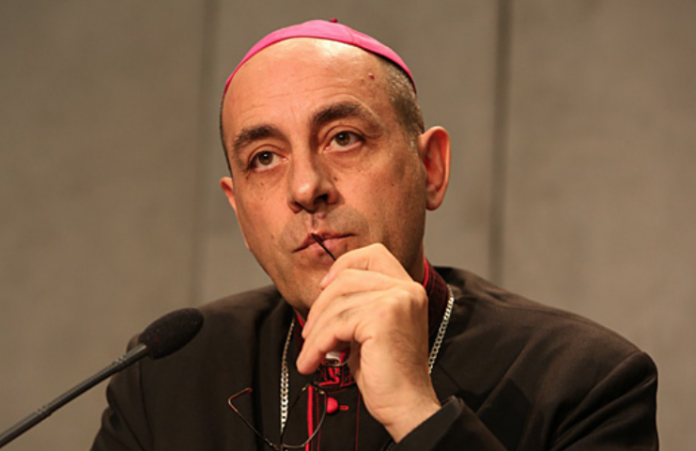In many ways, the clarification published by Cardinal Fernández on January 4, 2024, is even worse than the original document it purports to clarify, the Declaration Fiducia Supplicans of December 18, 2023.
Fernández doubles down on the idea of “non-liturgical blessings,” but this frankly makes no sense. A priest is a minister of God who, when he makes the sign of the cross over someone or something, is doing a religious, ministerial, efficacious, and, yes, ritual act. It doesn’t really matter how long it takes (“about 10 or 15 seconds” he says, with a grainy hands-on approach) or how simple it is (a model is suggested: “Lord, look at these children of yours, grant them health, work, peace and mutual help. Free them from everything that contradicts your Gospel and allow them to live according to your will. Amen”).
The Ukrainian Greek Catholic bishops were right to point out that according to their theology, blessings are inherently liturgical. But that was also the traditional Western view, and, ironically, something the Liturgical Movement tried to recover, a point we can see expressed in Sacrosanctum Concilium at Vatican II. Fiducia Supplicans marks a departure from both ecumenism and sound liturgical theology. (Ironically, this makes it anti-Vatican II and anti-liturgical reform, as Matthew Hazell shows… something you’d think would matter to these folks who made adherence to Vatican II—as they conceive it—the very reason for their campaign against the traditional Latin Mass. Or perhaps the clue lies in “as they conceive it…”)
Moreover, Fernández doubles down on the idea that Fiducia Supplicans expresses “perennial doctrine” (where’d that come from? perennial as of two weeks ago?), that it is binding and must be implemented eventually everywhere. Although there’s a bit of unintended humor in the sentence “If there are laws that condemn the mere act of declaring oneself as a homosexual with prison and in some cases with torture and even death, it goes without saying that a blessing would be imprudent,” nevertheless there is a condescending attitude toward the entire African continent and indeed toward all Catholics who value marriage and family strongly enough to wish to avoid entirely any and all appearances of support for that which is contrary to marriage and family. (For what it’s worth, that makes this document anti-peripheries and anti-poor-and-simple faithful… something you’d think would matter to—but I repeat myself.)
Finally, and most basically, there is a fundamental obliviousness (or is it a studied pretense?) about how actions communicate meaning. Fernández can say till he’s blue in the face that a quickie blessing of a gay couple or a divorced-and-remarried couple is not a “justification” or “endorsement” of their lifestyle, but the action itself shows the Church placing her mantle of blessing over them, which, to any ordinary person, suggests some kind of “may God bless this good couple and make them do better what they are already doing.” If this were not so, why would people approach a priest for such a blessing, as opposed to, say, a random neighbor, or the parish secretary, or the janitor? Come to think of it, in Germany, the parish secretary might be the one appointed for such tasks…
To that extent, it seems like Fernández is just shouting into the wind that “there’s no problem!” because he and Francis think or say there’s no problem—as if they believed reality bends to their pious conceptions (presuming honest intentions, which is by no means certain). (For what it’s worth, that makes Fiducia Supplicans a good example of the ivory-tower, armchair, ideological theology Francis criticized in Ad Theologiam Promovendam… something you’d think would—OK, you get the idea.)
Read it all in Crisis Magazine



